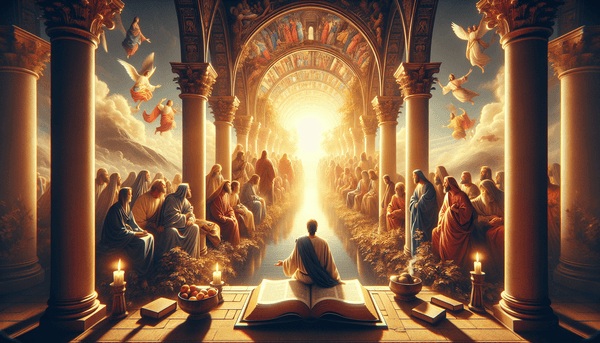New Beginnings and the Promise of Renewal
In the midst of life's constant flux, the book of Isaiah offers a profound message of hope: \"Forget the former things; do not dwell on the past. See, I am doing a new thing! Now it springs up; do you not perceive it? I am making a way in the wilderness and streams in the wasteland\" (Isaiah 43:18-19). This powerful passage invites us to release our hold on what has been, to anticipate the fresh paths God carves in the barren landscapes of our lives. Similarly, the apostle Paul in the New Testament echoes this sentiment of transformation, reminding us that in Christ, we become a new creation; the old has vanished, and the new has come to life (2 Corinthians 5:17). It's a spiritual rebirth that continuously unfolds, as Lamentations 3:22-23 assures us of God's unending mercies and new beginnings with each dawn.
The Harmonious Sound of Worship
Music holds a revered place within the fabric of worship, serving as a vehicle for expressing gratitude and adoration towards the Creator. The Psalms, an ancient collection of songs and prayers, frequently call upon the faithful to \"Sing to the Lord with grateful praise; make music to our God on the harp\" (Psalm 147:7). This act of worship transcends mere performance, reaching into the depths of the soul to stir a connection with the Divine. The apostle Paul encourages believers to speak to one another with psalms, hymns, and spiritual songs, to sing and make music in their hearts to the Lord (Ephesians 5:19). This communal aspect of musical praise enriches the church, binding individuals together in shared devotion and reflecting the vast array of expressions found within the body of Christ (Colossians 3:16).
Symbolism of Divine Care and Commitment
Psalm 23 stands as a testament to God's nurturing presence, painting the picture of the Lord as a shepherd who provides for every need, guiding us to still waters and restoring our souls. This imagery affirms that even in the darkest valley, we need not fear, for God's rod and staff offer comfort and protection (Psalm 23:4). As we honor our bodies as temples of the Holy Spirit, we heed the call of 1 Corinthians 6:19-20 to glorify God with our very selves, recognizing the sacredness within. The Bible further explores the intimate relationship between Christ and the church through the metaphor of a bride and groom, illustrating a bond of love, sanctification, and eternal union (Ephesians 5:25-27). As the church prepares herself, adorned for her groom, we are reminded of the pure and devoted love Christ has for His beloved (Revelation 19:7-8).
FAQ
Q: What is Psalm 23?
A: Psalm 23 is a beloved passage from the Bible that depicts God as a shepherd who cares for His flock, providing for their needs, guiding them to safety, and offering comfort in times of trouble. It is a source of great comfort and assurance to believers, emphasizing God's constant presence and protection.
Q: What does God think about music?
A: Music is celebrated in the Bible as a means to worship and honor God. It is used to express emotions, uplift the spirit, and foster a deeper connection with the Divine. God delights in the praises of His people, whether through song, instruments, or the music of our hearts.
Q: What does it mean when it is said that 'our body is a temple'?
A: The phrase 'our body is a temple' comes from 1 Corinthians 6:19-20, which teaches that our bodies are dwelling places for the Holy Spirit. As such, we are called to honor God with our bodies, treating them with respect and living in a way that reflects our sacredness and commitment to God.
Q: What is the significance of the metaphor 'We are the bride, Jesus is the groom'?
A: This metaphor, found in passages like Ephesians 5:25-27, symbolizes the deep and loving relationship between Jesus and the church. It represents the church as the bride, preparing to be united with Christ, the groom, in a bond of love, holiness, and eternal commitment.





